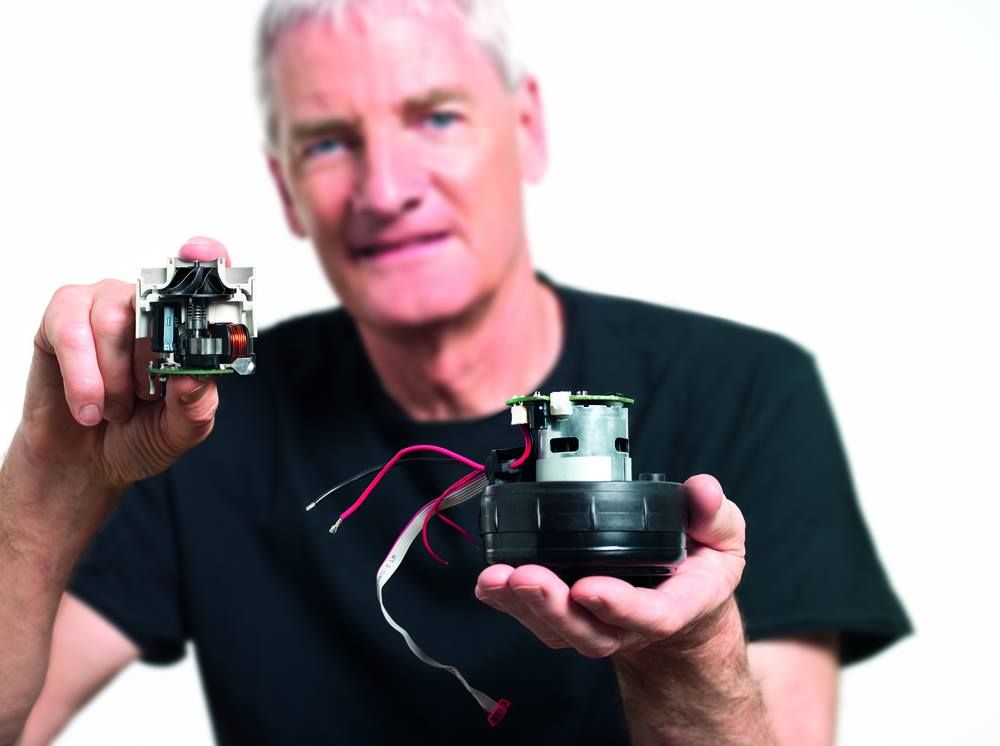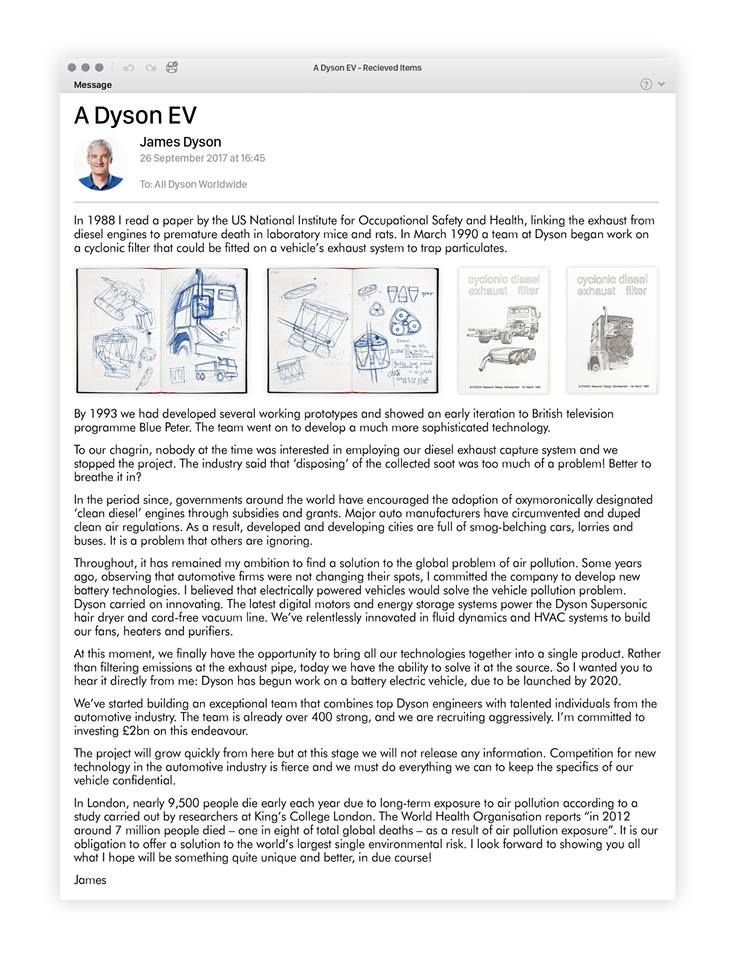Automakers and start-ups alike are gunning for market share in the all-electric segment, but I bet you’d never guess what company just announced its plans to build an electric vehicle by the decade’s end. Dyson Yeah, the same Dyson that builds those expensive vacuum cleaners and those noisy yet effective hand dryers in public restrooms. Looks like the future of electric cars is gonna suck (or blow).
And I mean that in the best way possible.
Dyson is about the last company anyone would figure on a full-fledged bid at kick-starting an automotive division. Yet, here we are. The British company has already earmarked $2.7 billion to develop its own cars in the U.K. And unlike other start-ups, Dyson isn’t relying on an existing automaker for parts or vehicle architecture. Of the funds, roughly half will go toward developing the vehicle, while the other half will go to perfecting new solid-state battery technology. Dyson plans to have its EV on public roads by 2020 – less three years away. While this might be the company’s first official announcement of its EV intentions, Dyson has already been developing the vehicle for two and a half years with roughly 400 employees assigned to the project. Still, no road-going prototypes exist at this point. And as far as the type of EV Dyson has in mind, well, that’s still extremely vague.
Continue reading for more information.
Dyson Strikes At The Right Time
The company’s CEO and namesake, Sir James Dyson, told Auto Express that he’s been interested in EVs long before they were cool.
“We’re not a Johnny-come-lately to EVs,” Dyson said. “I was interested in an all-electric car back in 1998 but the industry wasn’t interested. It wasn’t a fashionable thought in 1998; it wasn’t fashionable three years ago. I was very disappointed that none of solved this problem until bad publicity about diesel engines forced them to. I didn’t see what an existing manufacturer could offer us.”
Perhaps so, but it seems Dyson could have picked a better time for its announcement. It comes on the heels of Faraday Future voluntarily killing plans of a massive Nevada production facility and FF’s dissolving financial support. Worse yet, Tesla Motors has reportedly yet to make money on a single vehicle it’s built, despite strong sales over the last four years.
One thing Dyson does has that neither Tesla had nor Faraday Future have during their start-up days is a constant flow of revenue from other ventures. Obviously, expensive vacuum cleaners and hand dryers bring in big bucks. How else can the company afford to invest $2.7 billion into a pet project? This borrowed revenue will definitely be needed during Dyson’s EV’s early stages of life.
As for the type of vehicle Dyson has in mind, mum is the word. Sir James Dyson left Auto Express only with this hint: “It’s not a sports car and it’s not a very cheap car. It’s about technology and using technology in an interesting way. We’re not going for the Leaf.”
What do you think? Will Dyson be able to launch its own automotive division and successfully sell an all-electric vehicle with new-generation battery technology? Let us know what you think in the comments below.
Auto Express0}
Tesla Model S
Read our full review on the 2017 Tesla Model S.
Nissan Leaf
Read our full review on the 2018 Nissan Leaf.
Chevrolet Bolt EV
Read our full review on the 2017 Chevrolet Bolt EV.


